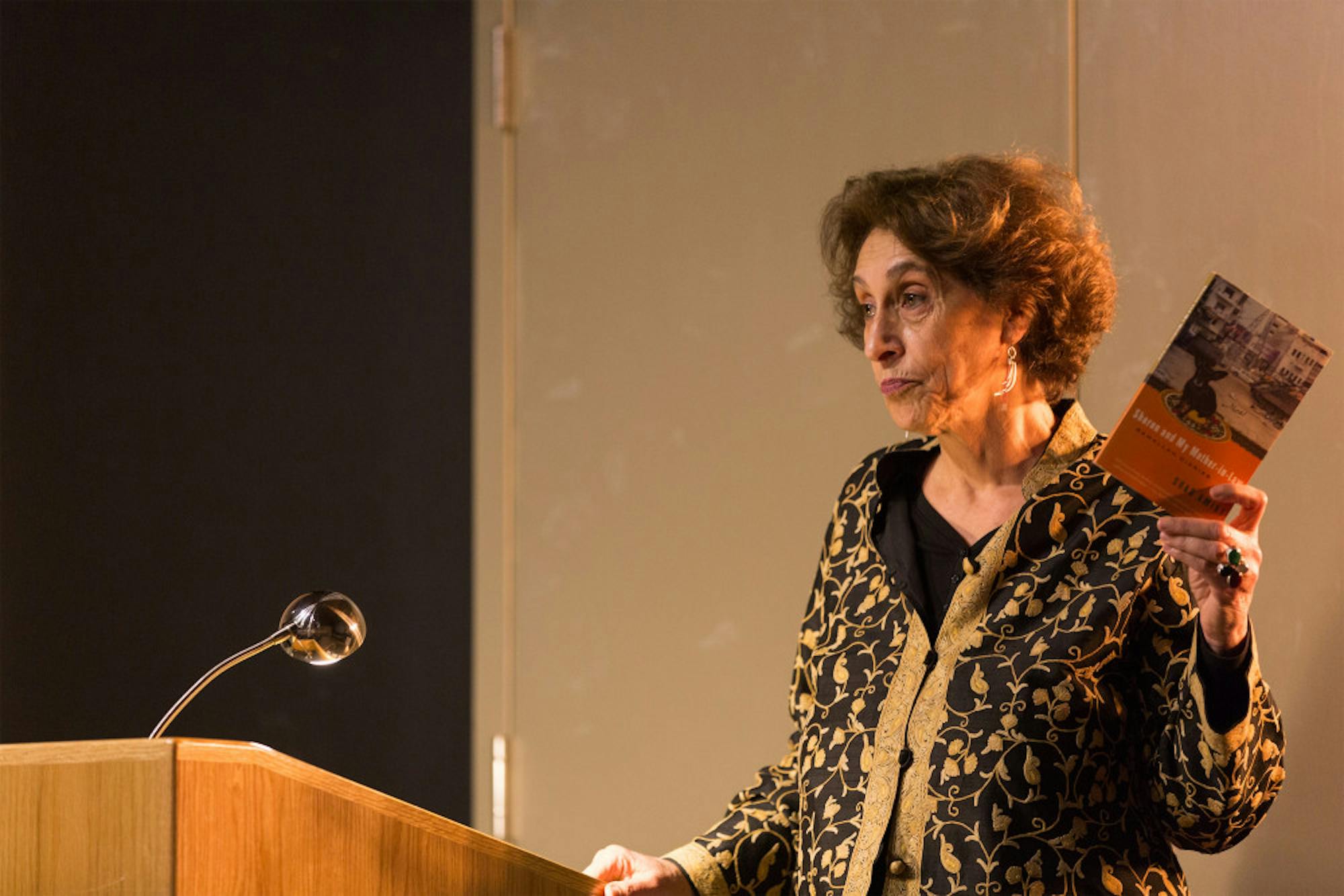Tufts' Institute for Global Leadership (IGL) hosted a panel discussion last night about ongoing efforts to resettle Syrian refugees in the Greater Boston area. The event, which was part of the IGL's Inquiry program, featured Jewish Family Service of Metrowest (JFS) CEO Marc Jacobs, JFS Director of Immigrant and Youth Services Lucia Carballo Panichella (LA '04) and Jenna Russell, a Boston Globe reporter and member of the Spotlight Team.
Inquiry is an annual simulation in which high school students gather to discuss international issues. More than 200 students from cities including Atlanta, New York, Indianapolis and Chicago came together this year to participate in this year's simulation, which is themed "Syria: The Future," according to IGL Associate Director Heather Barry.
Tong Liu, a member of the Education for Public Inquiry and International Citizenship (EPIIC) Inquiry Committee, opened the event by introducing the panel speakers and talking about the current crisis in Syria.
The program then featured a 20-minute excerpt from the new documentary “Cries From Syria,” a jarring inside look of the conflict ravaging Syria. The excerpt included many clips of war footage and documented the difficult journey that people have undergone to seek refuge in Europe. The video also showed disturbing images of injured refugees and featured chilling accounts from young orphans who witnessed the horrors of war and experienced inhumane treatment.
After the documentary showing, Jacobs spoke about the work he is involved in at JFS, particularly the organization's Syrian Refugee Humanitarian Project. The project's staff and volunteers work to help Syrian refugees in the Greater Boston area, particularly young children.
Jacobs spoke about how the families currently coming to the United States fled Syria between 2011 and 2014, and endured between two or three years of security vetting and screening before they could arrive in the United States. He explained that the project is focused on aiding vulnerable families, and especially young children, who have come to the United States to build a new life.
“This project does save young lives, and you’ll see a combination of extraordinary kindness, professional expertise and the full embrace of a community creating new and exciting paths,” he said. “It’s rare for me as a CEO to lead an initiative that isn’t about competitive advantage, to do something that you're really compelled to do ... and here’s why this really matters -- this is about children.”
He shared several photos and short anecdotes about his experiences with spirited young Syrian children that have settled in the Boston area. He said that one of the coalition's main goals is to help Arabic-speaking families attain stability and self-sufficiency in the United States.
He mentioned that JFS’ efforts have been met with some pushback, including from people who are skeptical of the organization's methods or believe it should not support Muslims.
“I refused to respond around any geopolitical considerations. This is a humanitarian effort and we must respond," Jacobs said. “We are a part of something driven by kindness.”
JFS receives support from an array of sources including volunteers, individual donors, Islamic centers, higher education institutions, foundations and mental health and medical institutions, creating a widespread coalition, according to Jacobs.
Panichella spoke about the network model that JFS has built. She explained that the organization has worked to ensure that its structure is beneficial for refugee families, helping them reach the goal of self-sufficiency and full integration into society.
“Pathways focus on housing, health, employment and community connections, and those pathways are also directly tied to all the core services that are required for resettlement by the federal government," Panichella said. “It takes a village to really do that.”
Some partner services include volunteer programs that teach English to both adult and children refugees. Panichella explained that English fluency is particularly important, as are connections between refugee families and core volunteers.
Russell, who was the final speaker, has been working on a series of pieces for the Boston Globe about Syrian refugees settling in the United States. She discussed her experiences interviewing and speaking with recently settled families from the moment they stepped off the plane, recalling the willingness of the refugees to tell their stories.
She said that, through her work, she was amazed by people's willingness to tell their stories, explaining that each had their own reasons to share.
“It’s a very real impulse that we have as human beings, and it goes back to cavemen who told stories on cave walls and sat around a fire telling stories," Russell said. "It felt connected for me in almost a kind of primal way."
Russell recounted her experience of witnessing an arrival of a refugee family for the first time. The mother stepped off a plane and embraced a case worker who was waiting for her.
“It changed me forever,” Russell said. “Something incredibly profound was happening and it was very moving ... my challenge is to communicate that in a way that will allow others to feel just a fraction of that.”
Panelists discuss journeys, struggles of Syrian refugees in Greater Boston Area

West Bank Author and Architect based in Ramallah, Suad Amiry, shares how her experience living in the Isreali-occupied territory influenced her books on activism and Palestine in Tisch 304 on April 6.





